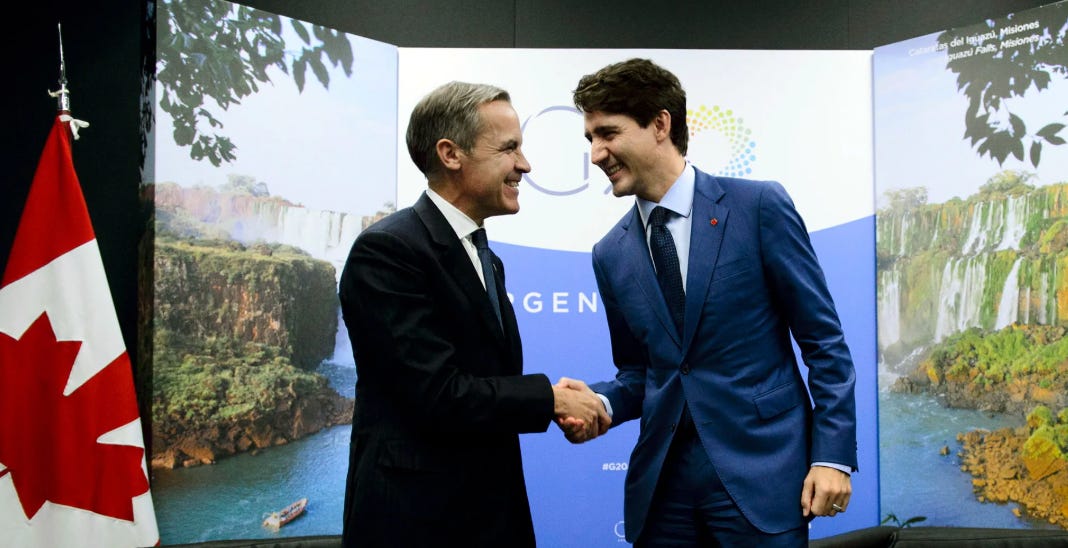Breaking: Trudeau Government Unlawfully Halted CSIS Foreign Operation, Endangering Officers and Damaging Canada’s Standing With Allies, Review Finds
OTTAWA — An explosive intelligence review indicates that senior political actors surrounding Prime Minister Justin Trudeau unlawfully intervened in a high-risk Canadian Security Intelligence Service operation targeting foreign threats abroad in coordination with allied nations—a politicized act that placed Canadian operatives in immediate danger and inflicted lasting damage on the country’s international reputation and trust among intelligence partners.
According to the redacted report released Thursday by the National Security and Intelligence Review Agency (NSIRA), the order to halt the operation was the result of “political-level discussions” and “first came from the National Security and Intelligence Advisor to the Prime Minister to the Director of CSIS.”
This chain of command suggests the halt originated in the Prime Minister’s Office—not from the CSIS Director or Public Safety Minister, as required under the CSIS Act.
This latest blow to Canada’s intelligence integrity—suggesting the inappropriate politicization of national security operations—comes amid growing tensions with key allies. In recent months, senior Trump administration official Peter Navarro reportedly raised the possibility of removing Canada from the Five Eyes intelligence alliance, the historic intelligence-sharing partnership founded among Allied nations during the Second World War.
The NSIRA review was triggered in September 2022, when then–Public Safety Minister Marco Mendicino requested an examination of whether CSIS and his department had fulfilled their legal responsibilities. Both Prime Minister Trudeau and Mendicino have already faced scrutiny in a separate RCMP external review, which raised questions about whether their government inappropriately politicized national security responses during the so-called “Freedom Convoy” protests that descended on Ottawa during the pandemic.
NSIRA’s months-long investigation into the foreign operation suggests a disturbing pattern: a CSIS mission was suspended or delayed midstream—possibly for partisan or diplomatic reasons—without legal authority. The intervention endangered CSIS personnel, disrupted the agency’s mandate to protect Canada from serious threats, and damaged intelligence cooperation with international allies.
“NSIRA found that the decision to halt this active CSIS operation [REDACTED] was not made by the CSIS Director under section 6(1) of the CSIS Act, and for which there is no written record of a direction coming from the Minister of Public Safety under… the CSIS Act,” the review concluded. “Moreover, [REDACTED] to halt this active operation created unnecessary danger for the CSIS team [REDACTED] and caused harm to Canada’s international reputation.”
Alan Treddenick, a retired CSIS senior operations officer with over 30 years of experience in foreign and domestic operations, said the case reflects a disturbing pattern of political interference under Prime Minister Justin Trudeau’s team—behavior he said was unprecedented in previous Canadian administrations.
"The recent report concerning political interference in an ongoing service investigation is astonishing, to say the least, and once again shows how an incompetent Prime Minister’s Office attempts to micromanage everything," Treddenick said. "Why was the National Security and Intelligence Advisor involved in calling the shots while the operation was still active?"
In a statement provided to The Bureau after this story was published Public Safety Canada asserted:
“While your reporting relays certain elements of the NSIRA report, it’s important to note that NSIRA did not observe any possible non-compliance issues with any laws, ministerial direction or operational policies.”
“The Government of Canada is reviewing NSIRA’s findings and recommendations,” the statement continued, “and will issue a Government response in due course. In order to protect classified operations, we will not comment further until our unclassified government response is issued.”
The Bureau’s analysis of the redacted report echoes patterns scrutinized during the Hogue Commission, where Trudeau government officials were accused of suppressing or delaying intelligence related to foreign interference in Canadian democracy—reportedly to protect Liberal Party interests. The concerns also recall the SNC-Lavalin affair, in which the Prime Minister and his staff were found by the Ethics Commissioner to have improperly pressured the Attorney General to halt a corruption prosecution.
In a strikingly similar pattern, The Globe and Mail has reported from Canadian military sources that then-defence minister Harjit Sajjan allegedly pressured Canadian special forces during the fall of Kabul in 2021 to prioritize the rescue of Afghan Sikhs—individuals not considered operational priorities at the time.
The new review of CSIS’s compromised foreign operation also revealed a dangerous collapse in control while Canadian officers and a source were evidently in serious danger.
NSIRA wrote: “The review revealed that CSIS senior officials had difficulty in grappling with [REDACTED] to halt the operation; so much so, in fact, that management and control of the operation appeared to cease functioning properly. The Director of CSIS, for instance, evidently no longer had decision-making control over the active operation, when on [REDACTED] he sent an email to senior officials within key security and intelligence portfolios stating: ‘time is quickly running out and the situation is getting much more tense on the ground. We need a decision tomorrow.’”
While much of the NSIRA report is redacted, several critical passages offer a glimpse into the scale and complexity of the abandoned CSIS mission. The review states: “The [REDACTED] story commences... when CSIS first learned of [information that required the planning of a specific category of operation]. CSIS started working with domestic and foreign partners [on an] operation involving [REDACTED].”
The operational consequences were acute. NSIRA wrote: “The CSIS team told NSIRA that they felt abandoned and, they believed that the absence of a Government decision ‘was a decision.’ Facing this untenable situation, the CSIS team felt forced to plan alternative actions to help ensure [their own] safety.”





